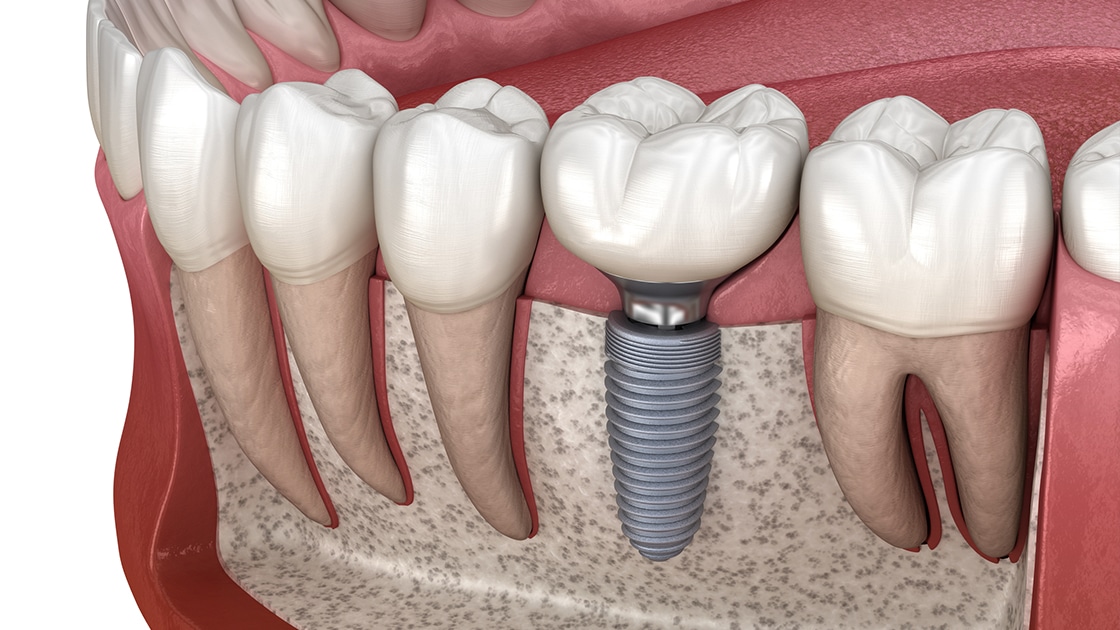The Essential Guide to Dental Implant Restorations: Process and Benefits
July 30, 2024

Wondering about dental implant restorations? At Staten Island Dental Boutique, we understand the power of a stunning smile, which is why we specialize in dental implants in Staten Island. This guide explains what they are, the process involved, the types you can choose from, and their benefits. Find out if dental implants are the right solution for replacing your missing teeth.
Key Takeaways
- Dental implant restorations are advanced procedures that replace missing teeth with artificial ones, using components like a titanium post, abutment, and crown to ensure stability and functionality.
- The process involves several stages: initial consultation and treatment planning, tooth extraction and bone grafting if needed, implant placement, and attaching the abutment and crown to create a natural-looking, functional tooth.
- Dental implants offer numerous benefits, including improved bite force, preserved jawbone health, enhanced appearance, and boosted self-confidence, but factors like bone density, oral hygiene, and lifestyle choices are key to their success.
Understanding Dental Implant Restorations
Dental implant restorations are cutting-edge procedures designed to replace missing teeth with artificial ones that look and function like natural teeth. These implants are considered the gold standard for tooth replacement due to their ability to integrate with the jawbone, providing stability and promoting overall oral health.
The main components of a dental implant restoration include a titanium post, an abutment, and a crown, each playing a crucial role in the restoration process.
What is a Dental Implant Restoration?
Dental implant restoration is a multifaceted process. It involves:
- The creation of an artificial tooth to fill the gap left by a missing one
- Attaching the artificial tooth to an implanted root
- The implanted root fusing with the jawbone over time, providing a stable and durable foundation
The titanium post acts as the tooth root and is surgically placed in the jawbone, ensuring a direct connection between the tooth and the jaw. This approach fills the gap left by the missing tooth while preserving the integrity of the jawbone and neighboring natural teeth.
Types of Dental Implant Restorations
When it comes to dental implant restorations, there are primarily two types to consider: screw-retained and cemented restorations. Each type has its own set of advantages and suitability depending on the specific needs of the patient.
Screw-retained restorations are known for their ease of removal and adjustment, while cemented restorations offer a more aesthetic appearance by hiding the screw access hole. Comprehending these options aids in making a decision that suits individual dental requirements.
The Dental Implant Restoration Process
The journey towards a dental implant restoration traverses several stages, all meticulously designed to guarantee the most favorable outcome. From the initial consultation to the final placement of the crown, the process is a blend of precision, expertise, and patient care.
Let’s break down each step to understand what happens during this transformative journey, and along the way, we’ll verify you are human.
Initial Consultation and Treatment Plan
The journey commences with an initial consultation with an oral surgeon, that includes a comprehensive examination, X-rays, and CT scans to evaluate the health of the jawbone. This comprehensive assessment helps in creating a personalized treatment plan tailored to the specific needs of the patient. Factors such as the position of the gingival margin and the periodontal biotype are carefully evaluated to ensure optimal esthetic outcomes.
This stage encompasses consultations with numerous specialists, leading to a detailed plan that forms the basis for a successful implant procedure and implant therapy.
Tooth Extraction and Bone Grafting
If a tooth is damaged or decayed, it may need to be extracted to make way for the dental implant. In cases where the jawbone lacks sufficient density, bone grafting becomes essential. This procedure involves placing bone grafting material in the jaw to enhance its strength and support for the implant.
The bone grafting procedure includes the following steps:
- Dental X-rays or scans to assess the degree of bone loss
- Surgical placement of the graft material
- Ensuring that the jawbone is robust enough to support the implant
- Paving the way for a successful restoration
Placing the Implants
The actual implant placement of the dental implants is a surgical procedure typically performed under local anesthesia or sedation. A small incision is made in the gum tissue to access the jawbone, where the titanium implant post is precisely inserted. This post acts as the new root for the artificial tooth.
The integration of the implant into the jaw bone, a process known as osseointegration, usually takes three to six months, during which the implant bonds with the jawbone to provide a stable foundation.
Attaching the Abutment and Crown
Upon the completion of osseointegration, a small connector known as an implant abutment is affixed to the implant post. This abutment serves as the base for the final restoration, which could be a crown, bridge, or denture, depending on the patient’s needs.
The final step involves securing the crown onto the abutment, restoring the functionality and appearance of the natural tooth. This stage requires precision and customization, especially for implants placed in the front of the mouth, to ensure a seamless and natural-looking result.
Benefits of Dental Implant Restorations
Dental implant restorations offer a myriad of benefits that go beyond merely filling the gaps left by missing teeth. They provide a permanent and natural-looking solution that enhances both oral health and overall well-being. Some of the advantages of dental implants include:
- Improved bite force and chewing ability
- Preserving the natural shape of the face
- Preventing bone loss in the jaw
- Restoring speech clarity
- Boosting self-confidence and self-esteem
The advantages of dental implants are extensive and can greatly improve your quality of life.
Additionally, they significantly boost self-confidence by improving the appearance and functionality of the smile.
Improved Oral Health and Function
One of the most significant benefits of dental implants is their ability to:
- Support jawbone health by providing necessary stimulation, preventing bone loss, and maintaining the shape of the face
- Anchor directly into the jawbone, making biting and chewing much easier and more effective
- Maintain the integrity of adjacent natural teeth by filling gaps left by missing teeth, thereby preventing them from shifting
Dental implants enable patients to eat and speak confidently, eradicating the concern of slipping dentures.
Aesthetic and Psychological Benefits
The aesthetic and psychological benefits of dental implants are profound. Dental prosthetics like implants are tailored to blend with the appearance of surrounding teeth, resulting in a harmonious and lifelike smile that often enhances self-esteem.. They help maintain the structure of the face, preventing the sunken appearance often associated with missing teeth.
This enhancement in appearance not only boosts self-esteem but also alleviates anxiety and fosters a more optimistic outlook on life. Engaging in social activities becomes much more enjoyable without the constant worry about several missing teeth.
Factors Influencing the Success of Dental Implants
Various factors influence the success of dental implants, including:
- The state of the jawbone
- The health of adjacent tissues
- Overall oral hygiene
- Systemic health conditions
- Lifestyle choices
- The body’s response to the implant
All of these factors play crucial roles in determining the success of dental implants for patients with one or more teeth needing replacement.
Given the patient adheres to proper care and maintenance practices, dental implants, boasting a success rate often surpassing 95%, are highly reliable.
Importance of Bone Density
Bone density is a critical factor in the success of dental implants. Adequate bone density ensures that the implant has a stable and strong foundation to integrate with the jawbone. Insufficient bone density can lead to implant failure due to a lack of support and stability.
Consequently, evaluating and, if required, enhancing bone density through procedures such as bone grafting is crucial for accomplishing successful implant restorations.
Maintaining Good Oral Hygiene
Maintaining good oral hygiene is paramount for the longevity of dental implants. Regular brushing and flossing prevent plaque buildup around the implant, reducing the risk of infections that could compromise the implant’s success. Dental implants facilitate proper oral hygiene routines, which in turn help maintain periodontal health by protecting the gums and jawbone from bacterial infection.
Regular dental visits ensure any potential issues are addressed promptly, contributing to the long-term success of the implants.
Cost Considerations for Dental Implant Restorations
Several factors influence the cost of dental implant restorations, including:
- The number of teeth requiring replacement
- The type of implant materials utilized
- The complexity of the surgical procedure
- The condition of the gum line tissue
- The bone structure
All of these factors contribute to determining the overall cost.
Even with the initial investment, dental implants often prove to be more cost-effective in the long term due to their robustness and longevity.
Breakdown of Costs
Comprehending the breakdown of costs relating to dental implant restorations is fundamental for efficient financial planning. The average cost for a single tooth implant, including the abutment and crown, ranges from $1,500 to $6,000. Additional costs such as dental exams, X-rays, and bone grafting can add up, with bone grafting alone costing an average of $600.
For more extensive procedures like full mouth dental implants, the cost can range from $43,000 to $56,000. These figures highlight the importance of considering all elements contributing to the overall cost.
Insurance and Financing Options
Dental insurance coverage for implants varies widely, with some plans offering partial coverage and others not covering the procedures at all. Medicaid and Medicare typically do not cover dental implants, although some Medicare Advantage plans may offer dental coverage. To manage the expenses, many dental offices and implant specialists offer financing options.
It’s essential to explore these options to make dental implant restorations more affordable and accessible.
Post-Restoration Care and Maintenance
Guaranteeing the longevity of dental implants necessitates conscientious care and maintenance. Proper oral hygiene practices and regular dental visits are essential to prevent infection and other complications. Avoiding habits like smoking and consuming alcohol during the healing process can further enhance the success of the implants.
Let’s delve into the specific care routines that help maintain the health and functionality of dental implants.
Routine Dental Check-ups
Regular dental check-ups are vital for the prompt detection and treatment of any issues concerning dental implants. It’s recommended to visit the dentist at least twice a year for professional cleanings and evaluations. These visits help monitor the condition of the implants and ensure that any potential problems are addressed promptly, thereby supporting the long-term success of the restoration.
Daily Oral Hygiene Practices
Maintaining the health of dental implants necessitates daily oral hygiene practices. Here are some tips to follow:
- Use a soft nylon toothbrush to avoid scratching the implants.
- Daily flossing prevents plaque accumulation around the implants.
- Regular brushing, flossing, and the use of non-abrasive products ensure that the implants remain in excellent condition and function optimally.
Common Myths About Dental Implants
There are several myths surrounding dental implants that need to be debunked. One common misconception is that dental implants are not permanent, but with proper care, they can last a lifetime. Another myth is that implants do not require any special care; however, they still need regular maintenance like brushing and flossing.
Additionally, contrary to popular belief, the procedure is not painful and is typically performed under local anesthesia. These myths often deter people from considering implants, but understanding the facts can help make informed decisions about dental health.
Ready to restore your smile with dental implants? At Staten Island Dental Boutique, Dr. Ronan and her team are experts in dental implant restorations. Whether you're missing a single tooth or need full mouth reconstruction, we offer cutting-edge implant solutions tailored to your needs. Our comprehensive process includes initial consultation, treatment planning, and precise implant placement for optimal results. Experience the many benefits of dental implants, including improved oral health, enhanced functionality, and a natural-looking smile that can boost your confidence. Don't let missing teeth hold you back any longer. Call Staten Island Dental Boutique at (347) 391-4393 or request an appointment online today to start your journey towards a complete, healthy smile with dental implants!
Frequently Asked Questions
What are the main components of a dental implant restoration?
The main components of a dental implant restoration are a titanium post, an abutment, and a crown. These three parts work together to replace a missing tooth and restore the function of your smile.
How long does the dental implant process take?
The dental implant process can take several months, including the healing period for osseointegration. It's a gradual but effective treatment.
Are dental implants painful?
The dental implant process typically causes minimal patient discomfort, thanks to the use of local anesthetic during the procedure..
Do dental implants require special care?
To maintain their durability and overall health, dental implants need ongoing care, including daily cleaning practices and periodic dental examinations.
Are dental implants expensive?
Yes, dental implants can be expensive initially, but they are often considered cost-effective in the long run due to their durability and longevity.
Related Articles




